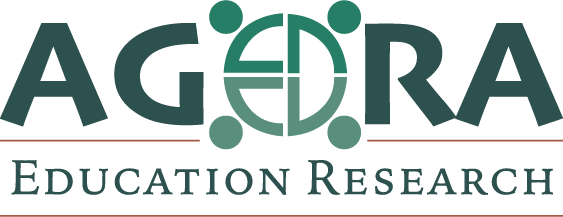Michael McGarrah is a social science researcher and policy strategist with 15 years of experience leading research and consulting projects across government, academia, think tanks, advocacy organizations, and nonprofit research institutes. His work focuses on translating rigorous, policy-relevant research into actionable insights that improve systems, advance opportunity, and support healthy human development.
Michael combines deep methodological expertise with an unusually broad cross-sector perspective. He has led large national surveys at the U.S. Department of Education, conducted program evaluations for U.S. and international school systems and NGOs, advised philanthropic foundations, consulting firms, and advocacy coalitions, taught graduate-level social science courses at Harvard, and instructed bilingual middle and high school students across multiple subjects in Spain as a Fulbright Scholar. This diverse experience enables him to understand the priorities and language of stakeholders at every level—from federal agencies and state/local policymakers to program managers, educators, and community members—and to communicate research findings in a way that informs action and drives impact across education, public health, criminal justice, and workforce development initiatives.
As the Study Director for the Crime and Safety Surveys Program, as well as a statistician and Contracting Officer’s Representative at the National Center for Education Statistics, Michael oversaw a $30 million federal research portfolio of complex sample surveys and managed a team of 25+ researchers and policy analysts. He led partnerships with the U.S. Census Bureau and the Department of Justice, managed large-scale data collection efforts on school crime, bullying, student safety, and substance use, and piloted methodological innovations including web-scraping and AI-based surveillance of emergency school closures and school shootings. He is also a Visiting Scholar at Harvard University, where he studies early risk factors for youth substance abuse and delinquency.
Michael’s technical toolkit spans experimental and quasi-experimental design, causal inference, mixed-methods program evaluation, and psychometrics. He has extensive experience using Stata, R, Mplus, NVivo, and Tableau, and has led or advised evaluations of educational interventions, youth mental health programs, social-emotional learning, and career pathway initiatives in both U.S. and global contexts. He specializes in designing and implementing studies that balance scientific rigor with practical constraints—producing findings that are not just valid, but usable.
His content expertise spans the full arc of human development—from infancy and early childhood through adolescence and adulthood—with particular depth in the areas of social-emotional learning and “soft” or “non-cognitive” skill development, youth substance abuse prevention, school safety and juvenile justice, career pathways, and higher education administration and policy. He holds a PhD in Human Development from Harvard, where his dissertation focused on identifying profiles of developmental risk for youth substance abuse to inform early intervention. He also earned a Credential of Business Readiness from Harvard Business School and a teaching certificate from the Harvard Bok Center for Teaching and Learning.
Whether designing large-scale evaluations, advising on survey methods, or helping organizations clarify and communicate their impact, Michael brings a systems-focused, human-centered approach to his work. He thrives in projects that demand both technical precision and thoughtful translation—connecting data to real-world decision-making to help programs and policies better serve the people they’re meant to support.
